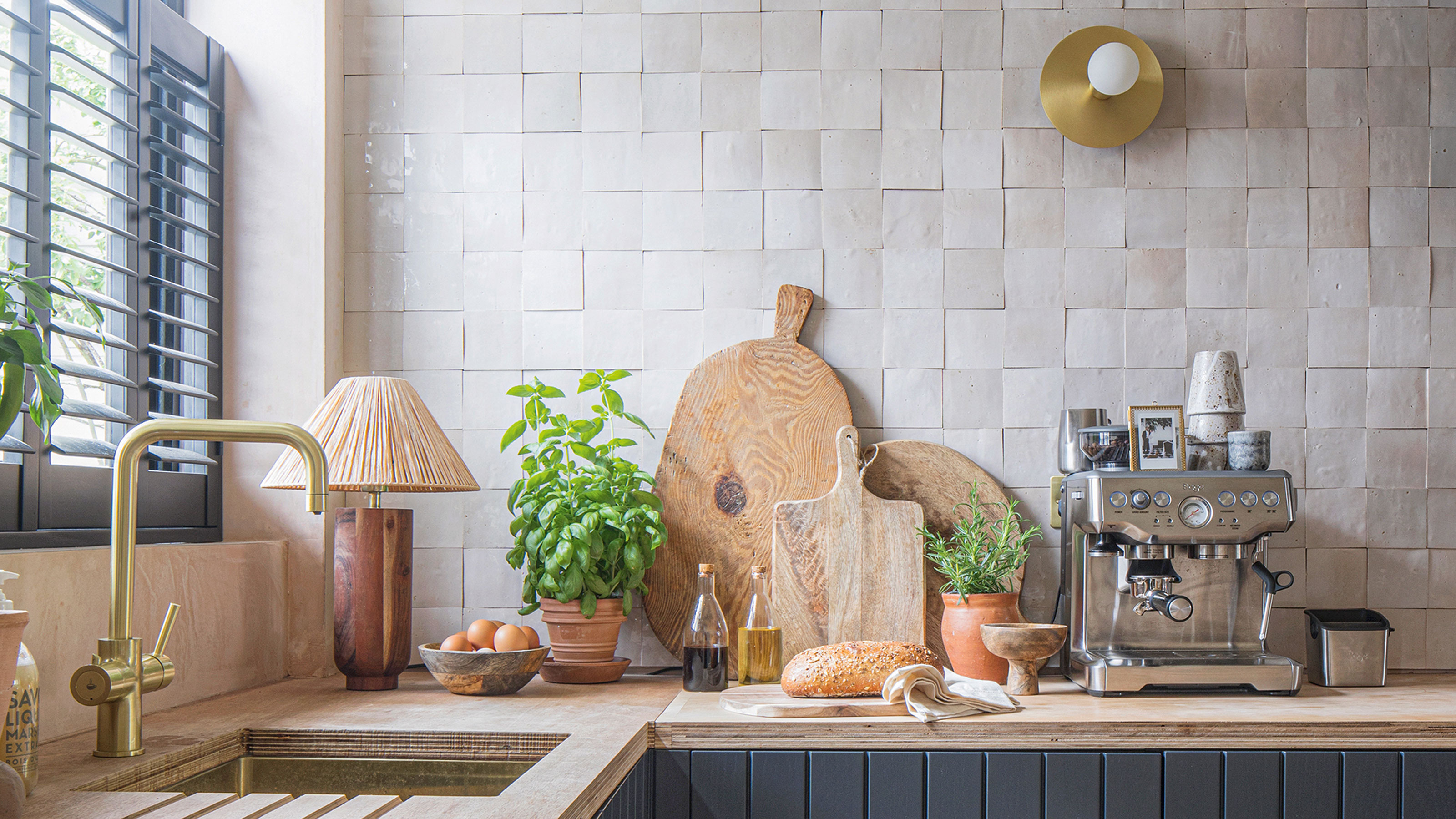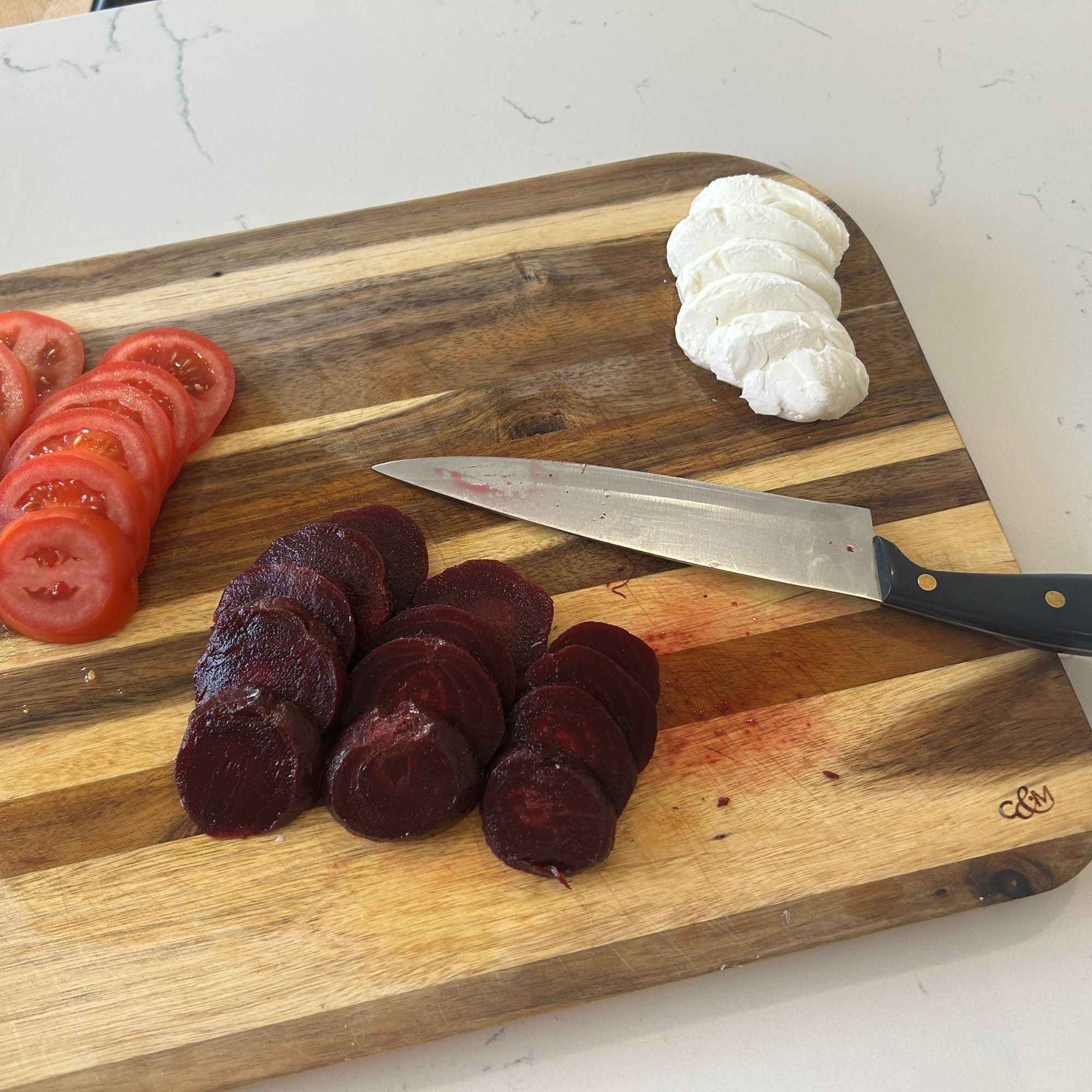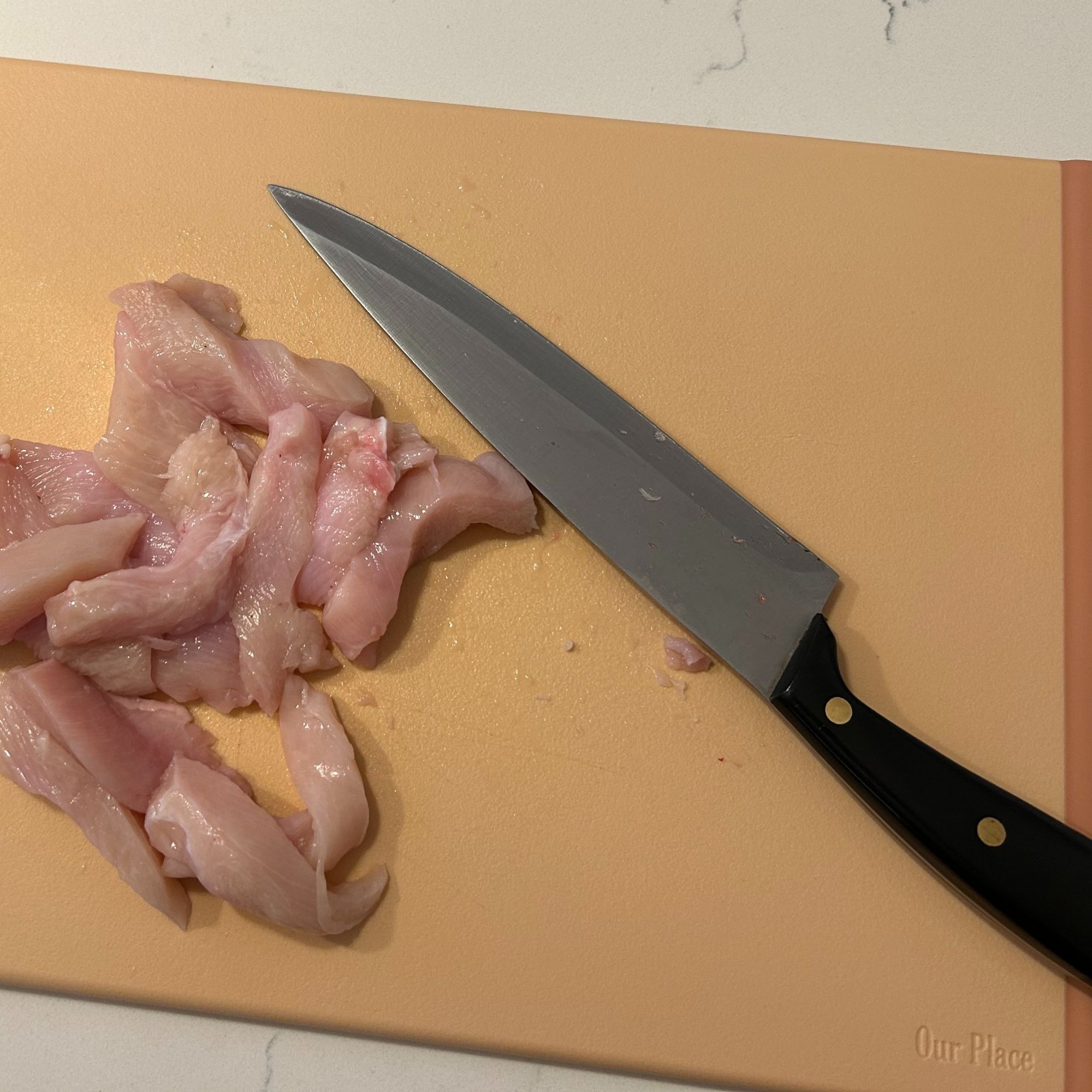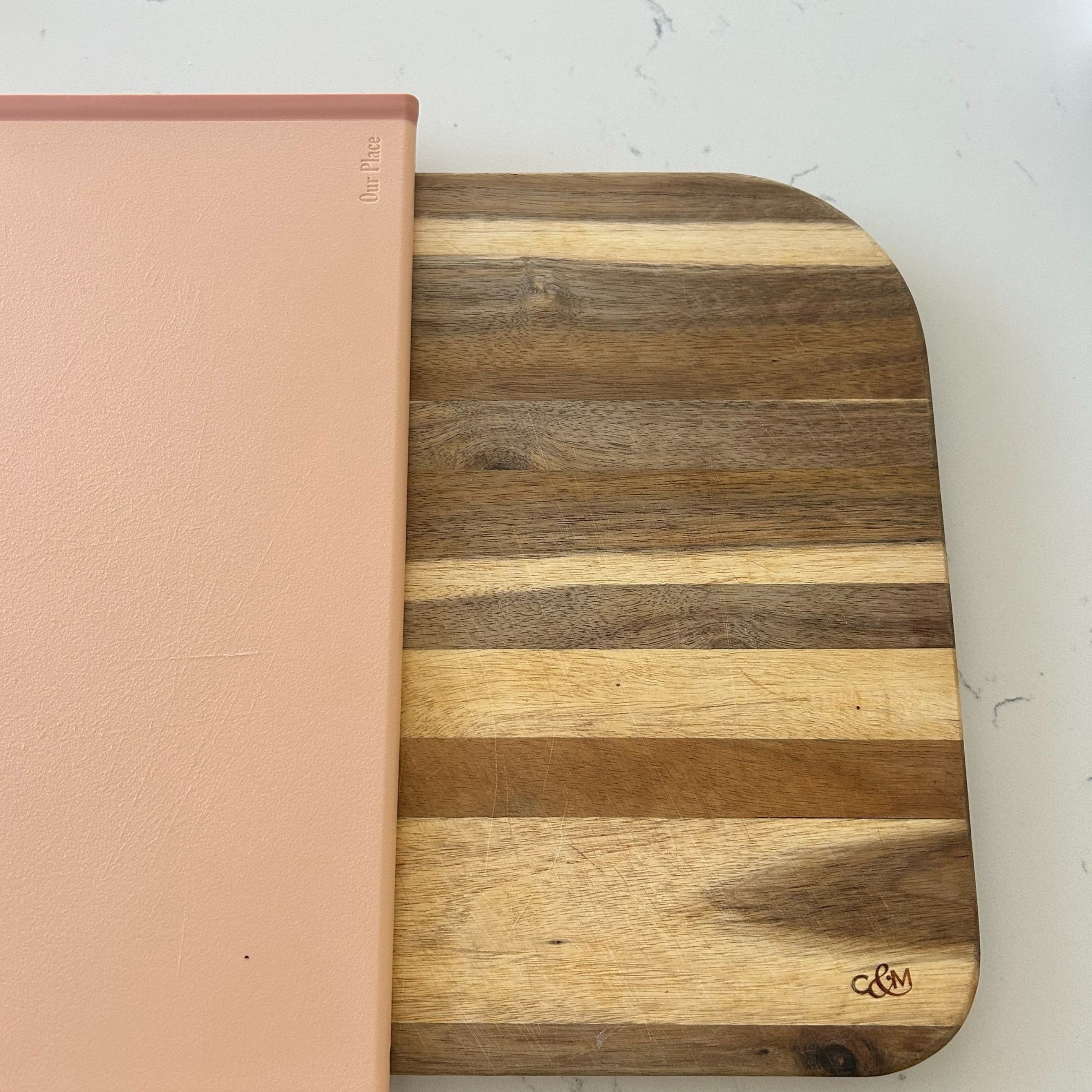Should you use a plastic or wooden chopping board at home? Here's why I think the answer is to use both
Wondering whether a wooden or plastic chopping board is best? Both have their pros and cons, but this is what the experts recommend


Whether you're decluttering your kitchen cupboards or buying all of your kitchenware for the first time, the question of wooden vs plastic chopping boards will forever be up for debate.
Lots of people argue that wood is healthier and looks better, but let's not forget that plastic is cheaper and can be dishwashed, among other things. There's not just the logistics to consider – and by that, I mean which type of board is best to use for chopping food – but there's also environmental and health factors involved. Is a wooden chopping board actually better for the environment? Are plastic chopping boards really easier to maintain?
In order to weigh up the pros and cons of both, I've spoken to experts about which they'd recommend to use alongside one of the best chef's knives.
Wooden chopping boards
Let's start things off with wooden chopping boards. I use the Berden Acacia Carving Board (£50 at Cole & Mason) daily, and I love it. I find it very easy to cut on, but it is heavy when it comes to moving to my sink to wash and dry. And it's frustrating that it cannot go in the dishwasher. It's double-sided, so I use its flat side for chopping everything from veg to cheese and fruit. Plus, this is sometimes used for serving. The other side features deep juice grooves that collect excess liquids, so it's perfect for carving meats.
I spoke with co-founder of non-toxic cookware brand Our Place, Shiza Shahid, all about the benefits of using wooden chopping boards in your kitchen. 'There’s a reason chefs and home cooks alike love a good wood board. Naturally antimicrobial, gentle on knives, and built to last, wooden boards age beautifully with use,' she explains.
When I questioned whether she would recommend a wooden or plastic chopping board, she answered, 'Wood boards may take a little more love — a quick oil rub now and then — but they reward you with character, durability, and a more sustainable kitchen,' she concluded.

There's more than just the logistics when it comes to using a wooden chopping board, though. Richard Joseph, CEO of Joseph Joseph, thinks that wooden boards will add to the look of your kitchen too, so you won't need to hide them away in your cupboard. 'They are also aesthetically pleasing and ideal for serving', he says. So, when the cheese board comes out at Christmas, you won't be stuck for a serving plate – just use your wooden chopping board.
Sign up to our newsletter for style inspiration, real homes, project and garden advice and shopping know-how
Let's not forget, there's simply no denying that a wooden chopping board is better for your health, especially with studies like this one from the Natural Library of Medicine, which proved that using a standard plastic chopping board can release microplastics into your food.
Plastic chopping boards
Moving on to plastic chopping boards, Shiza of Our Place assures me that they're not necessarily something to avoid. 'Plastic boards are lightweight, dishwasher-safe, and often more budget-friendly,' she claims. I use the Our Place Daily Board in my kitchen, mostly for cutting meats and fish. This is made from 100% recycled plastic, plus it's BPA-free.
First, let's talk about the aesthetics. Yes, a plastic chopping board won't look as nice in your kitchen and you will probably want to hide it in a cupboard, but Richard claims that 'chopping boards made from synthetic materials such as Polypropylene are lightweight'. If you're less able or can't be carrying a large lump of wood from your countertop to your sink daily, then plastic should be your go-to.

The other factor to consider is maintenance. Shiza goes on to say that with plastic chopping boards, 'over time, they can develop deep grooves that trap bacteria and unlike wood, plastic doesn’t have the same self-healing properties'.
Richard recommends a plastic chopping board if maintenance is something you know you'll struggle with: 'they also require less maintenance than wooden boards, making them a more convenient option for everyday use,' he says. If thorough cleaning does concern you, 'plastic chopping boards are easier to sanitise, as they can be safely cleaned in a dishwasher, allowing for thorough disinfection,' assures Richard.
It might also be worth having one separate plastic chopping board in your kitchen if you consume meat at home, like the Joseph Joseph Folio Set. These cleverly-designed boards are colour-coded so you can always ensure that your meat is cut on the same board, and the same goes for fish and veggies. It's a simple way to avoid cross-contamination.
Environmental factors

I checked with the experts and asked Richard from Joseph Joseph which option he thought was better for the planet, a wooden or a plastic chopping board. 'Wooden chopping boards generally have a lower environmental impact, especially when made from durable materials such as bamboo,' he answered. Saying that, plastic is extremely durable and when cared for properly, it will last for years and years of use.
Essentially, the answer lies with the person who does the cleaning up: if you know that you're going to look after your wooden chopping board properly, which includes cleaning it well after each use and then proceeding to dry it to avoid rotting. Don't forget it will also need rubbing to keep the wood looking and performing at its best. If you can commit to doing these things daily, then a wooden chopping board is better for you and for the planet.
However, if you know you won't have time to maintain a wooden chopping board and would rather something you can chuck in the dishwasher because you're often on a time crunch, then plastic is the better option for the planet. If you're not one for maintenance, then if you buy a wooden chopping board and don't properly look after it, you'll need to bin it and buy another in a few years, making this as much of a hindrance on the environment as a plastic board that you've used for double the amount of time.
Price
As Shiza admits, plastic chopping boards tend to be more wallet-friendly. Especially those that are made from Polypropylene. You might end up spending more on plastic if you're eco-conscious and would prefer a plastic board that's made from recyclable materials.
When it comes to wood, it all depends on the type of wood you'd like. Bamboo tends to be more affordable because of how fast-growing it is, and let's not forget that the larger and thicker the chopping board, the more expensive it will be, naturally.
In a nutshell
After speaking with the experts, it seems a good compromise is a plastic and a wooden chopping board in your kitchen.
Try and opt for a smaller plastic board and only use it for cutting meats and fish. Then, use your wooden board for everything else. The plastic board can be thrown in your dishwasher for peace of mind that it has been properly cleaned, and the wooden one will be hand-washed only. If you're stuck for storage space, the wooden board can be displayed, if you like.
If you need to choose one, then if I'm weighing up all factors, I would suggest going for a wooden board. This will cost more initially, but so long as you're properly cleaning and maintaining it, especially if you're using it for cutting raw meat and fish, it will last for a long time. Wooden chopping boards cannot release microplastics into your food, and they are better for the environment if they are well looked after.

Annie is Ideal Home's Deputy Ecommerce Editor. With four years of eCommerce experience under her belt, you can find her shopping words of wisdom on Real Homes, Gardeningetc, Livingetc, Homes & Gardens and Woman & Home. When she's not planning ahead or curating deals for Amazon Prime Day or Black Friday, you can find Annie testing a range of products in her South London home, from reed diffusers to candles, BBQs, mattresses and even a few vacuum cleaners.